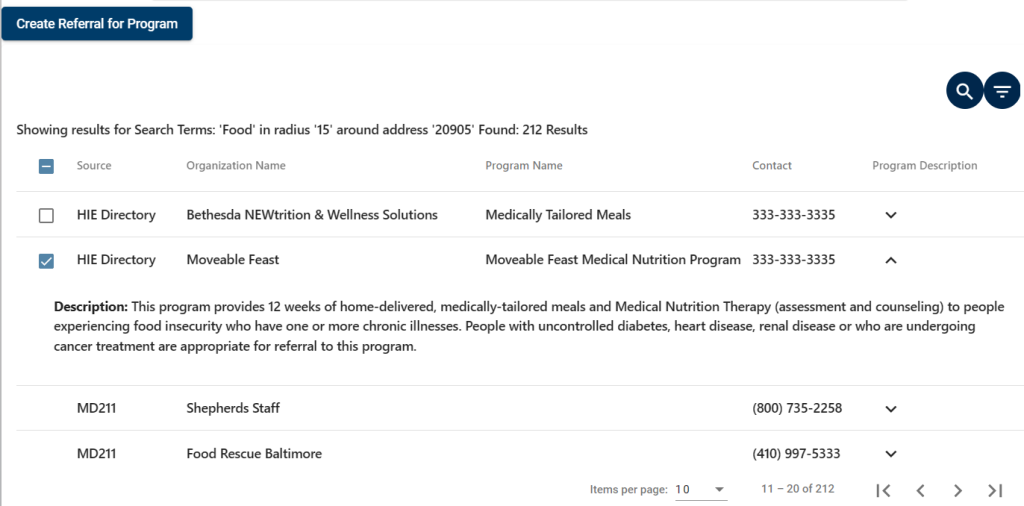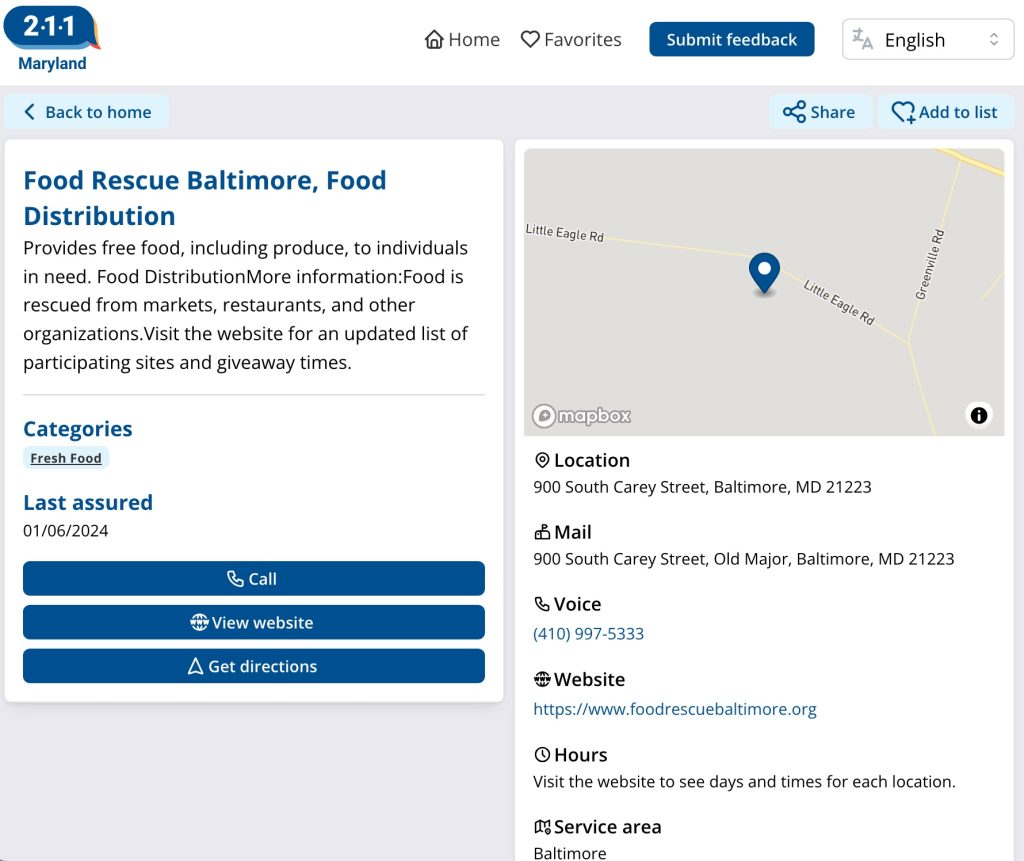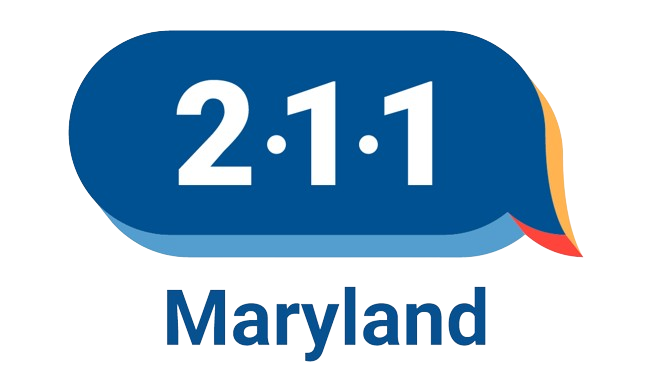Let’s give a big welcome to the blog for Quinton Askew, Executive Director of the Maryland Information Network (MIN), the statewide administrator of Maryland’s 2-1-1 service. Take it away Quinton!
2-1-1 Maryland has worked with Open Referral over many years, so we’re excited to share with this community a report on our recent partnership with CRISP – Maryland’s Health Information Exchange – and the Maryland Department of Health (MDH).
In 2023, we partnered with Open Referral to develop a groundbreaking collaboration with CRISP and MDH’s Maryland Primary Care Program (MDPCP) Management Office. The results from this partnership point to exciting new horizons for coordination between healthcare, social service providers, and information-and-referral services. It’s a glimpse of a future in which reliable information about social services is easy to find and use wherever people might be able to benefit from it – including right in your doctor’s office.
The Maryland Primary Care Program is a statewide program that provides funding and support for the delivery of advanced primary care to over 500 primary care practices in Maryland. Part of this advanced primary care paradigm includes building capacity within primary care to help providers screen their patients for health-related social needs, and link patients to community-based services. The MDPCP has a focus on advancing health equity and providing practices with tools and support to reduce disparities, and as such the MDPCP Management Office was eager to partner with us and CRISP to drive this collaboration forward. With MDH’s support, the Maryland Information Network is now providing CRISP with resource directory data directly from our statewide 2-1-1 resource database, as a machine-readable web service (via API). This enables users of CRISP’s IT infrastructure to access information about social services directly within their workflow.


This resource data service also integrates with CRISP’s innovative social care referral system, through which clinical providers can refer patients directly to participating non-profit organizations that address specific social needs. Previously, CRISP had to manually maintain information about the services provided by each of its partners in the referral program. Now, CRISP can receive and deliver data about the partners in its social care referral program directly from our database – which reduces duplicative work, improves data quality, and enables new kinds of analytics using the integrated data that flows through both systems.
Alongside this work, the Maryland Information Network also developed a new partnership model in collaboration with key anchor institutions in communities around the state. 2-1-1 now maintains ‘service registers’ (i.e. official lists) of all service providers associated with both the United Way of Washington County in Western Maryland, and the Midshore Local Health Improvement Coalition in Eastern Maryland – both areas in which our partners have prioritized improvements to the breadth and quality of information about local resources. In this innovative partnership model, the local anchor institution implements new policies through which their service provider partners (grantees in the case of the United Way of Washington County, and members in the case of the Local Health Improvement Coalition) register their own services within 2-1-1. In turn, our resource data specialists monitor and assure the quality of this information – and we provide training, support, and web services to the local anchor institution and its network.
As we improve the quality of this resource data, and make it available in more ways, we expect use of it to increase – and, in turn, because the data is made available through the same service infrastructure, we also intend to gather more analytics about this expanding usage, such as patterns of searches and referrals to these services. In turn, this information about the use of resource data can generate valuable insights about our partners’ communities’ needs – and corresponding policy priorities. Best of all, MIN has developed agreement templates and protocols that can make these partnerships even easier to develop in the future.
Through the course of this project, the Maryland Information Network also built new systems for receiving and responding to feedback about data quality from users across the many systems that now receive and share this resource data with help-seekers.
Together, we’re transforming 2-1-1 into the nervous system for the human service sector, and a key infrastructural foundation for the transformative integration of healthcare and social care.
Note: this work was supported by the Centers for Disease Control and Prevention’s National Initiative to Address COVID-19 Health Disparities Among Populations at High-Risk and Underserved, Including Racial and Ethnic Minority Populations and Rural Communities grant number OT21-2103 through the Maryland Department of Health.


Leave a Reply